

In recognition of International Women's Day and Women's History Month, the department is thrilled to highlight the many contributions made by its excellent women faculty, alumni, and students. Their work has impacted science, technology, the arts, activism, and anything else you can imagine. Check out this year's updated and expanded list of bios and news from ECE's many accomplished women.
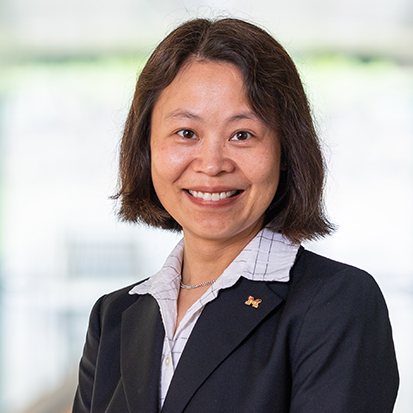
Prof. Mingyan Liu is the Peter and Evelyn Fuss Chair of Electrical and Computer Engineering (ECE). Her appointment became effective on September 1, 2018.
Prof. Liu conducts research in the broad area of communication networks. Her most recent research activities involve wireless, mobile, ad hoc, and sensor networks; online learning; modeling and mining of large scale Internet measurement data; incentive mechanisms for cyber security; and connected vehicle technologies.
After developing technology that predicts with up to 90 percent accuracy the likelihood that a company will be exploited by cyber criminals within the next year, she co-founded the company QuadMetrics. The company was acquired two years later. [read more] For her work, she was awarded the 2018 Distinguished University Innovator Award.
Mingyan Liu named new chair of Electrical and Computer Engineering at Michigan
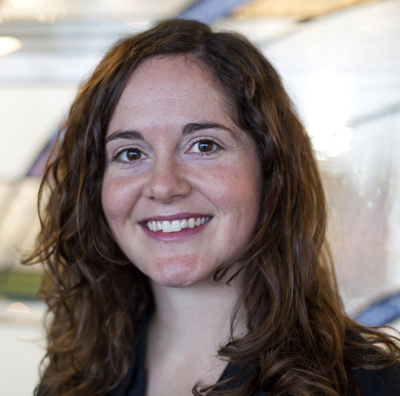
Prof. Laura Balzano is an assistant professor in EECS. She conducts research in mathematical modeling and analysis of massive data sets with missing or corrupted observations - one of the hottest areas in signal processing, statistics, and applied mathematics. Her work is applicable to computer network monitoring, environmental sensing, urban sensing, electronic medical records analysis, biological networks, and social network mining.
| Laura Balzano receives NSF CAREER Award to improve machine learning for big data applications |
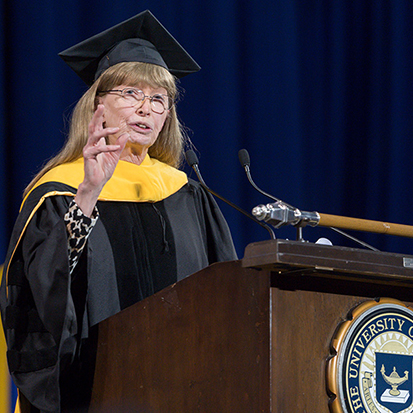
Lynn Conway, professor emeritus of electrical engineering and computer science, is a woman of many remarkable stories. A pioneer of early VLSI technology, she helped make the once mystifying practice of fabricating circuits possible for a broad audience of engineers. Opening up chip design to the general engineering community, including engineering students, helped the industry explode and ultimately led to today's Silicon Valley.
Prof. Conway was U-M's Winter 2018 Commencement keynote speaker. In addition to her distinguished career, Prof. Conway drew on her experiences as a transgender woman to inspire graduates with messages of hope, acceptance, and leadership. She received an Honorary Doctorate of Science.
Read more about Prof. Conway's work and accomplishments:
Lynn Conway to Receive 2015 IEEE/RSE Wolfson James Clerk Maxwell Award
Solid-State Circuits Publishes Special Issue with Lynn Conway's Memoir of the VLSI Revolution
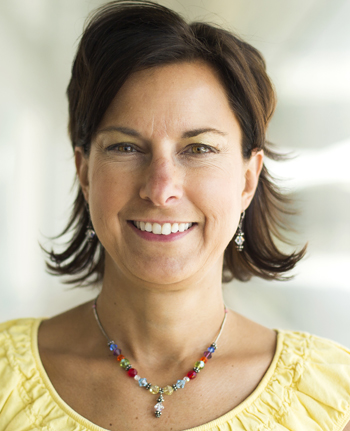
Prof. Finelli's research is in engineering education, and she currently studies student resistance to active learning, faculty adoption of evidence-based teaching practices, and institutional change. In addition to her research, she assists engineering faculty in accomplishing their educational research endeavors and promotes institutional change through faculty professional development. She is also leading efforts to hire engineering education research faculty and develop an engineering education research PhD program.
Active learning study may lead to a step toward broader change in higher education
As she furthers this research, Prof. Lee will develop improved methods for gene therapy by delivering corrected genes directly to the cell nucleus of damaged genes more efficiently and with greater control than is currently possible. This research will also provide a better understanding of tissue formation, and may one day lead to new strategies to engineer functional replacement tissues, such as lungs, organs, and glands.
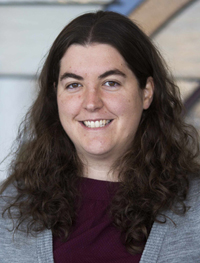
She is currently working on the problem of how best to integrate wind and solar power into the nation's established electrical grid system. Prof. Mathieu received a CyberSEES grant from the National Science Foundation to pursue this work.
How air conditioners could advance a renewable power grid
Johanna Mathieu receives NSF CAREER Award to help build a smarter, more sustainable grid
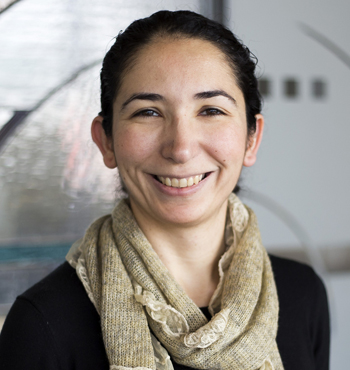
"All of these different pieces are interacting," she explains. "Your computer software is interacting with the physical world, with humans, and communication protocols. We have expertise in different parts of the puzzle, but when people try to put these things together the integration is a problem because no one was thinking about the whole picture."
Prof. Ozay's research interests lie at the broad interface of dynamical systems, control, optimization and formal methods with applications in system identification and validation, autonomy and vision. Her research will impact the safety and security of cyber and physical systems.
Necmiye Ozay receives 2019 Henry Russel Award
Necmiye Ozay Receives CAREER Award for Research in Cyber-Physical Systems


Prof. Peterson was awarded an NSF CAREER award to develop new alloys of amorphous oxide semiconductors with precisely tuned semiconductor energy band structures in order to enable new categories of electronic and opto-electronic devices. This research is applicable to the next generation of high-power electronics and deep ultraviolet optoelectronic devices, with specific applications in renewable energy and health care.
Prof. Becky Peterson Honored with 2018 U-M Henry Russel Award
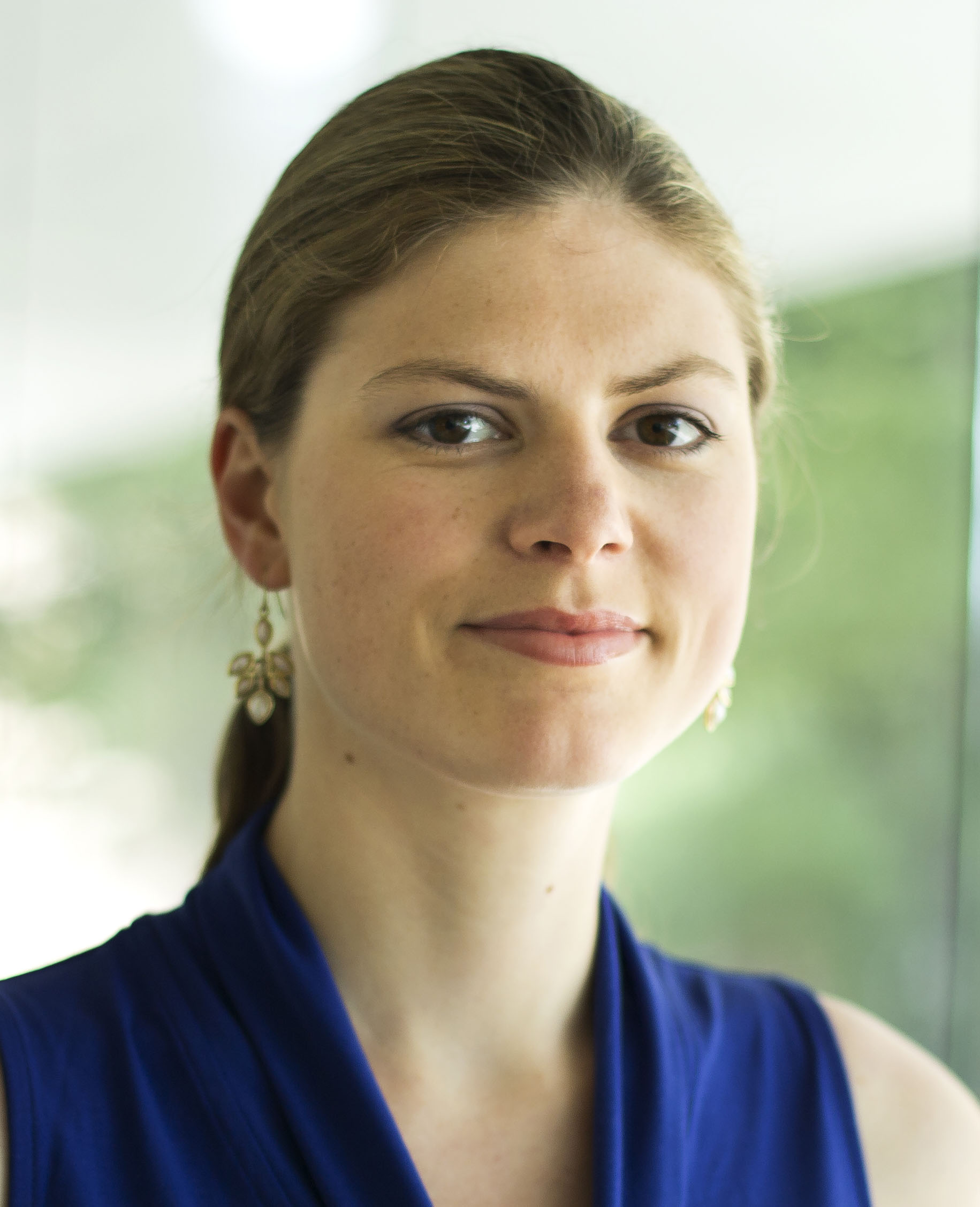
Prof. Willingale was awarded an NSF CAREER award for her research project "Relativistic Electron Driven Magnetic Reconnection." Magnetic reconnection occurs during high-energy-density phenomena such as solar flares and auroras, and is also relevant to the process of nuclear fusion. Willingale conducts high-energy-density laboratory experiments at the University of Michigan T-cubed laser facility and with the HERCULES laser, both housed in the Center for Ultrafast Optical Science, to shed light onto the little understood process of magnetic reconnection and test the accuracy of existing theories
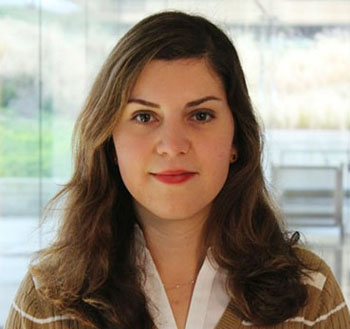
Dr. Ansari's research has resulted in the highest reported resonance frequencies and (fxQ) values in GaN bulk-mode devices to date. Such high-performance integrated systems can be utilized in radio frequency (RF) and microwave communication as well as extreme environment applications. And she achieved this on silicon, which enables easier integration with modern high performance electronics. Her research resulted in one issued patent, and another two provisional patents.
While at Michigan, Dr. Ansari was a member of the Resonant MEMS Group, and advised by Prof. Mina Rais-Zadeh. She received the College of Engineering Richard and Eleanor Towner Prize for outstanding Ph.D. research in 2015.
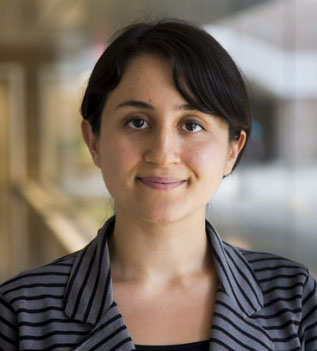
Recently, she has focused on the public good problem known as interdependent security. Interdependent security deals with the fact that the security of a network is increasingly dependent upon the collective efforts of each one of its interconnected users.
Read about Parinaz's work in security and her Barbour Scholarship.
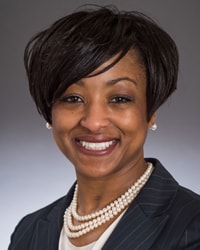
Blanton joined Carnegie Mellon in 2015 as director of operations in the university’s Finance Division. In that and her current role, she provides strategic leadership for the university’s business and finance functions, as well as for the management of its financial and capital resources. She also oversees Audit Services, the Treasurer’s Office, the Controller’s Office, Budget and Financial Planning, Procurement, and Business Systems and Services.
Blanton started her career as an electrical engineer with Delphi Automotive and Chrysler. She then worked at PPG Industries in various financial analyst roles in the Chemicals, Glass and Coatings business units and controllership areas. Blanton moved to PNC Financial Services and served as a finance manager in the Retail Banking controllership function before transferring to the PNC Finance Project Management Office. Prior to joining Carnegie Mellon, she was the CFO for PNC Financial Services brokerage investment business.
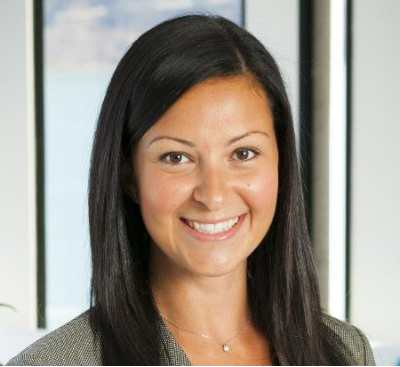
She gave the keynote address at CiscoLive! Cancun, offering a tribute to earthquake victims and launching a campaign to help the victims, and gave an inspiring talk about rising to your full potential, based on tough lessons learned as a daughter of refugees.
During her time at U-M, Dr. Borno developed energy scavenging microsystems as a graduate student researcher in the NSF Engineering Research Center for Wireless Integrated MicroSystems (now WIMS2). Her research was published in ten peer-reviewed papers, multiple book chapters, and was featured in Wired, Business Week, New Scientist, CNN Money, Conservation, and others.

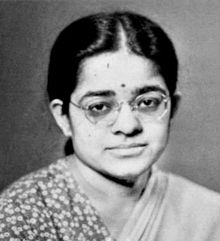
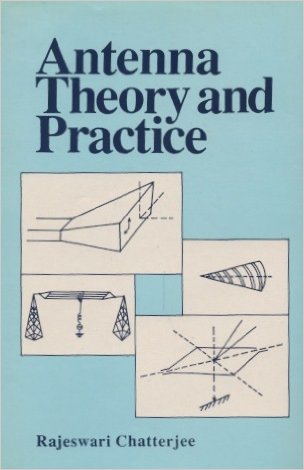
She traveled to study EE at Michigan on a scholarship, traveling by sea out of Singapore for 30 days to reach the US. She underwent practical training for eight months in the Division of Radio Frequency Measurements at the National Bureau of Standards in Washington D.C. before studying with Prof. William Gould Dow for her PhD.
After graduating, she returned to India as a professor in the Department of Electrical Communication Engineering at the Indian Institute of Science. There, she began teaching and research in the area of Microwave Engineering, a first for India. With total dedication and the limited resources available at that time, they built up a Microwave Laboratory for experimental research in the area. Eventually, she went on to chair the department.
Chatterjee was just granted a posthumous honor, named one of the ‘first women achievers of India’ by the Union Ministry of Women and Child Development.
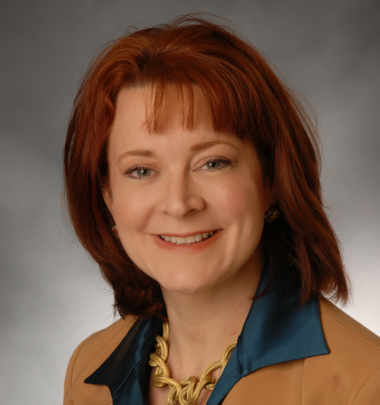
Dr. Kathryn Clay (MS EE '96 PhD Applied Physics '04) became President of the International Liquid Terminals Association (ILTA) in January 2018. The ILTA, based in Washington DC, is an advocate and resource for the liquid terminal industry.
In her former position as Vice President of Policy Strategy at the American Gas Association (AGA), she helped lead the drive to keep America competitive and secure through the adoption of natural gas as a key alternative fuel for vehicles.
Kathryn helped usher three bills into law while a member of the professional staff of the House Committee on Science, and later with the Senate Committee on Energy and Natural Resources. One of these bills was the Energy Policy Act of 2005, which was the first of its kind since 1992.
Kathryn Clay appointed President of the International Liquid Terminals Association
Among her recent research activities, Crow is leading the Mid-America Regional Microgrid Education and Training Consortium, which is part of a U.S. Department of Energy effort to support power systems research and develop coursework for the renewable energy workforce. Crow also leads Missouri S&T’s contributions to a nationwide effort to develop an “Internet for energy” to transform the way energy is delivered nationwide.
From 2007-2012, Crow served as the Director of the Missouri S&T Energy Research & Development Center. She has been PI or Co-PI on $22 million (US) in externally funded research sponsored by the National Science Foundation, DOE, DOD, DOT, DOEd, the State of Missouri and several utilities, authored over 200 technical articles and several textbooks and book chapters, and is the VP for Publications for the IEEE Power & Energy Society. Crow is a Registered Professional Engineer in the State of Missouri and a Fellow of the IEEE.
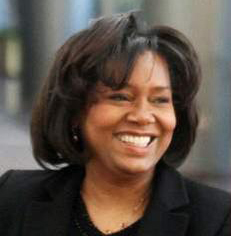
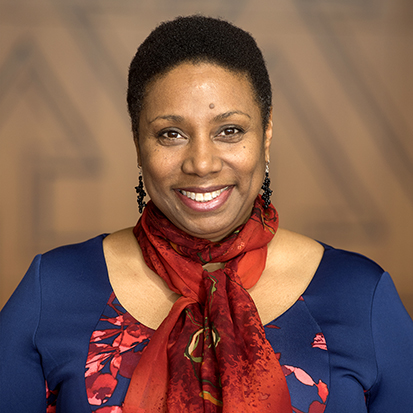
Prof. Franklin uses her influence to attract a diverse student population to the STEM field, and her own field of applied electromagnetics. She believes the best research results are achieved from a diversity of backgrounds, something she learned as a graduate student at Michigan and fosters in her own research group at Minnesota.
Read a Q&A with Prof. Franklin about her work connecting with diverse students.
Prof. Franklin returned to campus in the fall of 2018 as the the Willie Hobbs Moore Distinguished Lecturer. The lectureship was established to recognize ECE alumni from traditionally underrepresented groups who are leaders in their field and serve as role models for the ECE community. She spoke about her research developing building blocks for advanced 3D packaging and microwave biomedical diagnostics related to sensing and nanomedicine, as well as other impacts of her work. She also spoke about issues affecting diverse demographic representation in STEM fields.
Read more about her visit and messages to students, or watch her Willie Hobbs Moore lecture below.

Earlier, Goldberg went from working at one of the premiere labs associated with NASA, to being one of the earliest team members of Planetary Resources, a company that wants to mine asteroids.
Throughout her career in California, Hannah worked with a high school FIRST Robotics team. In fact, when the original team advisor stepped down, she was encouraged to get a teaching certificate so she could be the faculty advisor. “I ended up teaching an engineering class and a robotics class in high school, almost as a side career. The students were great,” said Hannah.
Goldberg received the 2017 ECE Alumni Rising Star Award.
Brief Video Interview with Hannah Goldberg
Hannah Goldberg: Crazy About Asteroids (2013 article)
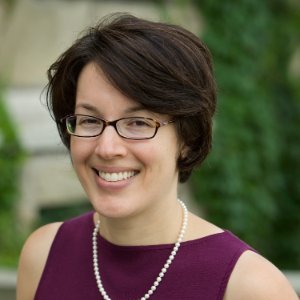
Formerly, Hemami worked as Associate Director of ECE at Cornell University and later as chair of ECE at Northeastern University. In her time as a professor, her research focused on communication of visual information, both from a signal processing perspective (signal representation, source coding, and related issues) and from a psychophysical perspective. She studied how the human brain perceives visual information by developing better models for low-level vision as well as for higher-level vision which includes understanding and cognition. Hemami was Vice President and a Member of the Board of Directors of IEEE from 2015–2016.

Prof. Henderson worked at Motorola and Freescale Semiconductor before joining UT Dallas in 2007. She is a senior member of the IEEE and a member of the Microwave Theory and Techniques Society, Women in Engineering, and Antennas and Propagation Society, Components, Packaging and Manufacturing Technology Society.
Read about Prof. Henderson's innovating teaching techniques.

MEMStim make customizable micro-fabricated stimulators. The company sells MEMS electrode leads to medical device companies for integration into their targeted nerve stimulation devices. Tthe company is committed to improving the standard of patient care in neurostimulation. MEMStim is based in Kentucky, where Dr. Johnson leverages the expertise of a wide range of consultants, and is continuing to develop the technology in the cleanroom of the University of Louisville.
Additionally, Dr. Johnson teaches entrepreneurship courses in the University of Louisville's business school, and takes on informal mentoring of students interested in grad school, research, or entrepreneurship.
Dr. Johnson won first prize in the 2011 Michigan Business Challenge, kickstarting her company's early growth. She studied under Prof. Ken Wise, and conducted research as a member of the Center for Wireless Integrated Microsystems (WIMS).

She has a variety of experience with space technology, including time as a trainee at the European Space Agency, working on such projects as the CESAR Robotic Telescope.
During her time at the University, Isabel was a longtime member of the Michigan Mars Rover team, founded the Robotic Exploration of Space Team in response to the NASA Robotic Mining Challenge, and formed the M-tanglement team for the Freescale Cup competition that involved designing, building, and testing a line-following autonomous vehicle.
Read about Isabel's accomplishments and Distinguished Leadership Award.
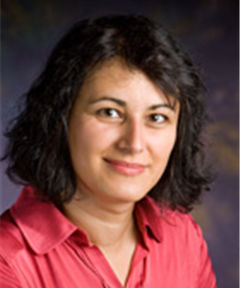
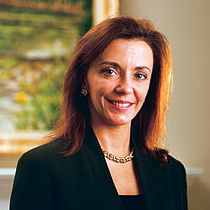

The University of Michigan established the Willie Hobbs Moore: Aspire, Advance, Achieve Award to recognize individuals who have served as formal or informal mentors to students in fields related to Science, Technology, and Engineering. It is sponsored by the Center for Engineering Diversity & Outreach and Women in Science & Engineering.

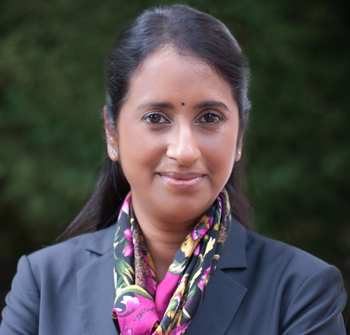
Dr. Meera Sampath (PhD EE:S '95; also a BE from Anna University and a M.Tech from the Indian Institute of Technology) is Provost Fellow at the State University of New York.
Sampath supports the SUNY Vice Chancellor for Research and Economic Development in developing and launching strategic research initiatives and expanding industry collaborations. Prior to joining SUNY, Meera was Vice President of Innovation at Xerox Services where she oversaw a broad research portfolio in Automation and Analytics across 4 research centers in the US, Europe and India, with special focus on Transportation and Healthcare industries. As Founding Director of Xerox Research Center India, she led the creation and establishment of the company’s first research lab in Asia from concept to scale.
Sampath is known for her pioneering contributions to the field of discrete event dynamic systems and model-based diagnosis. She holds over 15 US patents. Her current research interests are in human-technology collaborative work, socially responsible automation, and the role of technology and education in creating jobs of the automation era. A recipient of the University of Michigan’s Alumni Merit Award, Dr. Sampath is active on a number of education focused boards including the University of Michigan ECE advisory council, the Rochester International Academy for refugee students, and the Hochstein School of Music and Dance also in Rochester, NY.

Katherine Scott (BSE CE EE '05; MS, Computer Science, Columbia University) is Image Analytics Team Lead at 3Scan, a company of engineers, biologists and data-scientists working to identify and classify histopathologic features and tissue structures. Her areas of expertise include computer vision, machine learning, and robotics.
She co-founded and served as software lead at Tempo Automation. Her company produces pick and place robots that automate surface mount assembly, an expensive and slow step in the electronics prototyping process. Their goal is to make iterating on hardware designs as rapid and effective as designing software.
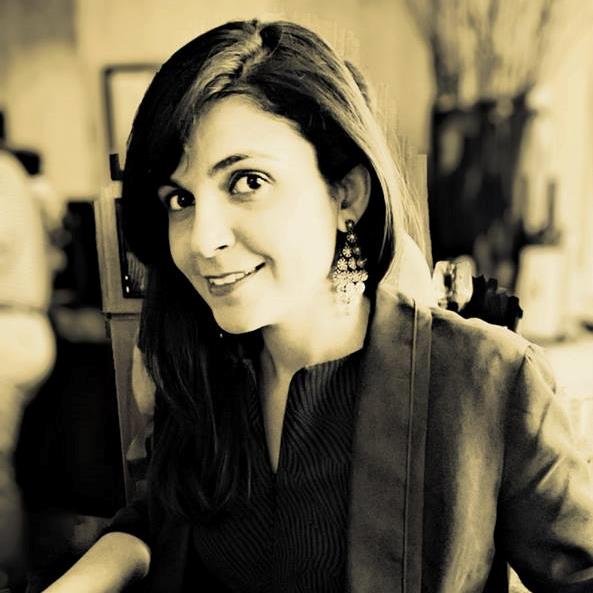
Farah was the original mastermind behind the product line, successfully pitching the idea to managers after making health and fitness a priority in her own life.
"Meet Farah Shariff, the Xbox engineer behind the Microsoft Band"
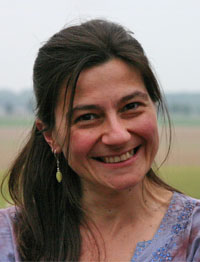
Prof. Anna Stefanopoulou (MSE Naval Arch & Marine Eng '92, MSE PhD EE:Sys '94 '96) is the William Clay Ford Professor of Manufacturing, and a Professor in Mechanical Engineering at U-M. She was named Director of the Energy Institute in 2018. She is also Director of the Automotive Research Center, a multi-university U.S. Army Center of Excellence in Modeling and Simulation of Ground Vehicles.
Her research interests include estimation and control of internal combustion engines and electrochemical processes such as fuel cells and batteries. Stefanopoulou was named Fellow of SAE in 2018.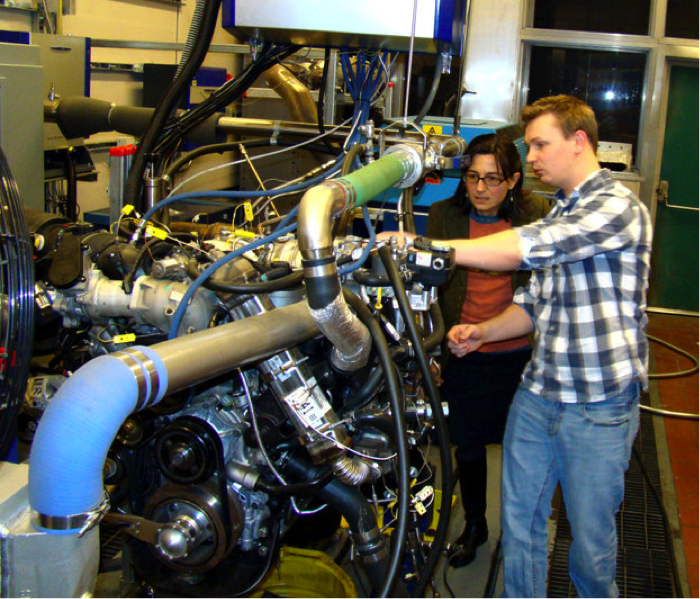
She is also an ASME and an IEEE Fellow, the founding chair of the ASME DSCD Energy Systems Technical Committee and a member of a U.S. National Academies committee on US. Vehicle Fuel Economy Standards. She has co-authored a book on Control of Fuel Cell Power Systems, 14 US patents, 5 best paper awards and 250 publications on estimation and control of internal combustion engines and electrochemical processes such as fuel cells and batteries.
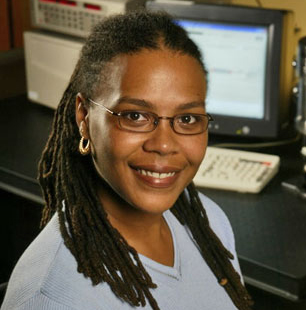
Prof. Adrienne Stiff-Roberts (BSE EE PhD Applied Phyics '01 '04) is Professor of Electrical and Computer Engineering at Duke University.
While studying at Michigan, she investigated high-temperature quantum dot infrared photodetectors. Her current research interests include the synthesis of multi-component and hybrid (organic-inorganic) materials using a novel approach for organic-based thin film deposition that combines solution and vacuum-processing. Her technique is applicable to a broad range of applications, especially optoelectronic and energy devices.
Prof. Stiff-Roberts' honors include an IEEE Early Career Award in Nanotechnology for “contributions to the development of nanoscale quantum dots for infrared detection,” a Presidential Early Career Award for Scientists and Engineers, an ONR Young Investigator Award, and an NSF CAREER AWARD.
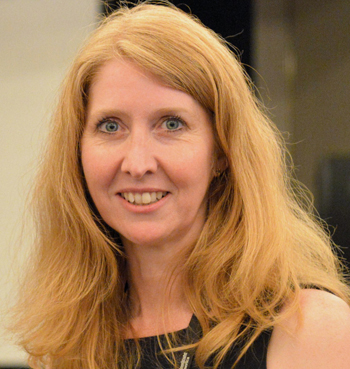
She is also a consultant, drawing on her background in laser product development (as an engineer and a product manager), know-how in marketing and sales, and experience doing business development for small or start-up businesses in the ultrafast or fiber laser space.
Dr. Stock co-founded Arbor Photonics in 2007, and was Director of Business Development. Arbor Photonics developed high power, fiber laser solutions for advanced materials processing and defense applications. The company was acquired by nLIGHT in 2013. She is currently Director of Business Development for Norlase.
In 2017, Stock was elected Fellow of SPIE, the international society for optics and photonics, "for achievements in business development and science policy for the photonics industry."

Stephanie Takai Wernet (BSE EE '88; also MBA, Stanford University) is CIO and VP Purchasing for Breakthrough Schools.
She was formerly CEO of two companies, Takai and Company and Innovative Devices. The former is her startup consulting firm that assists companies with marketing, web presence, and branding.
Innovative Devices made a splash in early 2013 when it raised about $355,000 via Kickstarter for its premiere device, the Mycestro mouse. This special mouse is a wearable human-computer interaction device capable of gesture control and 3D motion. The company is headquartered in the greater Cleveland area of Northeast Ohio.
Previously, Stephanie worked for many years with Goodyear in a variety of roles, including CIO, Vice President of IT, and Vice President of eCommerce.
Read more about Stephanie's work with Goodyear (2008 article)

Erin Teague (BSE CE and CS '04; MBA Harvard Business School) is Director of Product Management at Google. Prior to this position, she was Director of Product, Fantasy Sports, at Yahoo!
Erin began her career at Morgan Stanley, where she designed algorithms embedded in electronic trading applications as a Software Engineer and Product Manager in the firm's Algorithmic Trading Technology group. In 2014, she was named one of Business Insider's "Silicon Valley 100." She was also recognized as one of "19 Extraordinary Women in Silicon Valley Tech" and one of the "52 Hottest New Stars In Silicon Valley." Erin serves on the board of several Silicon Valley startups as well as the Wells Fargo Advisory Board and Code 2040, a non-profit organization.
Watch her Talk: Building Products for New & Emerging Platforms" at the 2018 Product Leader Summit

Dr. Yi-Chin Wu (MSE PhD EE:Sys '11 '14) is a machine learning software engineer at Pure Storage, which develops all-flash data storage hardware and software products. Before joining Pure, she was a postdoctoral researcher for the TerraSwarm Research Center, where she developed privacy enforcement algorithms using control theory and formal methods.
Her dissertation focused on an information-flow property called "opacity" that captures whether a given secret of the system can be inferred by intruders who observe the behavior of the system.
Read about Yi-Chin's 2014 ProQuest Distinguished Dissertation Award


Her experiences led her to establish the Irma M. Wyman Scholarship at the University of Michigan's Center for the Education of Women. The scholarship supports women in engineering, computer science, and related fields. Irma remains deeply invested in the scholarship program, and enjoys a continuing relationship with the recipients.
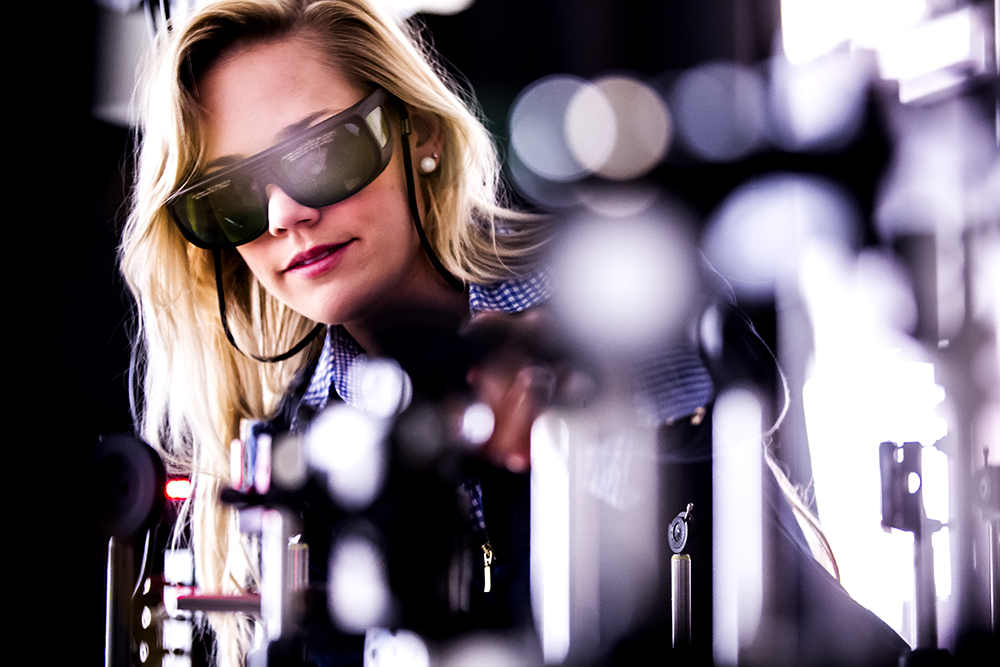
Laura Andre, a doctoral student in optics and photonics, is working with Prof. Stephen Rand, Director of the Center for Dynamic Magneto-Optics (DYNAMO) on laser cooling of solids. Prior to coming to Michigan, Andre performed research on laser cooling of gasses at a nearby naval base.
She recently received an MKS Instruments Research Excellence Award for a paper submitted to the 2019 SPIE Photonics West conference.
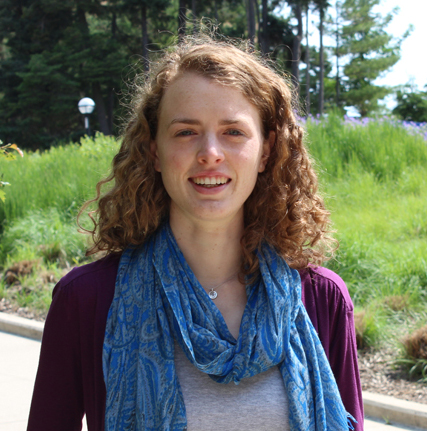
Stephanie Crocker, a PhD student, works with Prof. Johanna Mathieu to provide continuous energy balancing on the grid by automatically controlling loads. This must be done without disrupting customers and without compromising the grid's physical integrity. Stephanie’s goal is to develop control systems that both provide energy balancing to the grid via loads while managing the physical constraints of the grid’s distribution network.
Stephanie Crocker Ross receives Rackham Predoctoral FellowshipStephanie Crocker Earns NSF Graduate Research Fellowship to Bring Sustainable Energy to the Grid
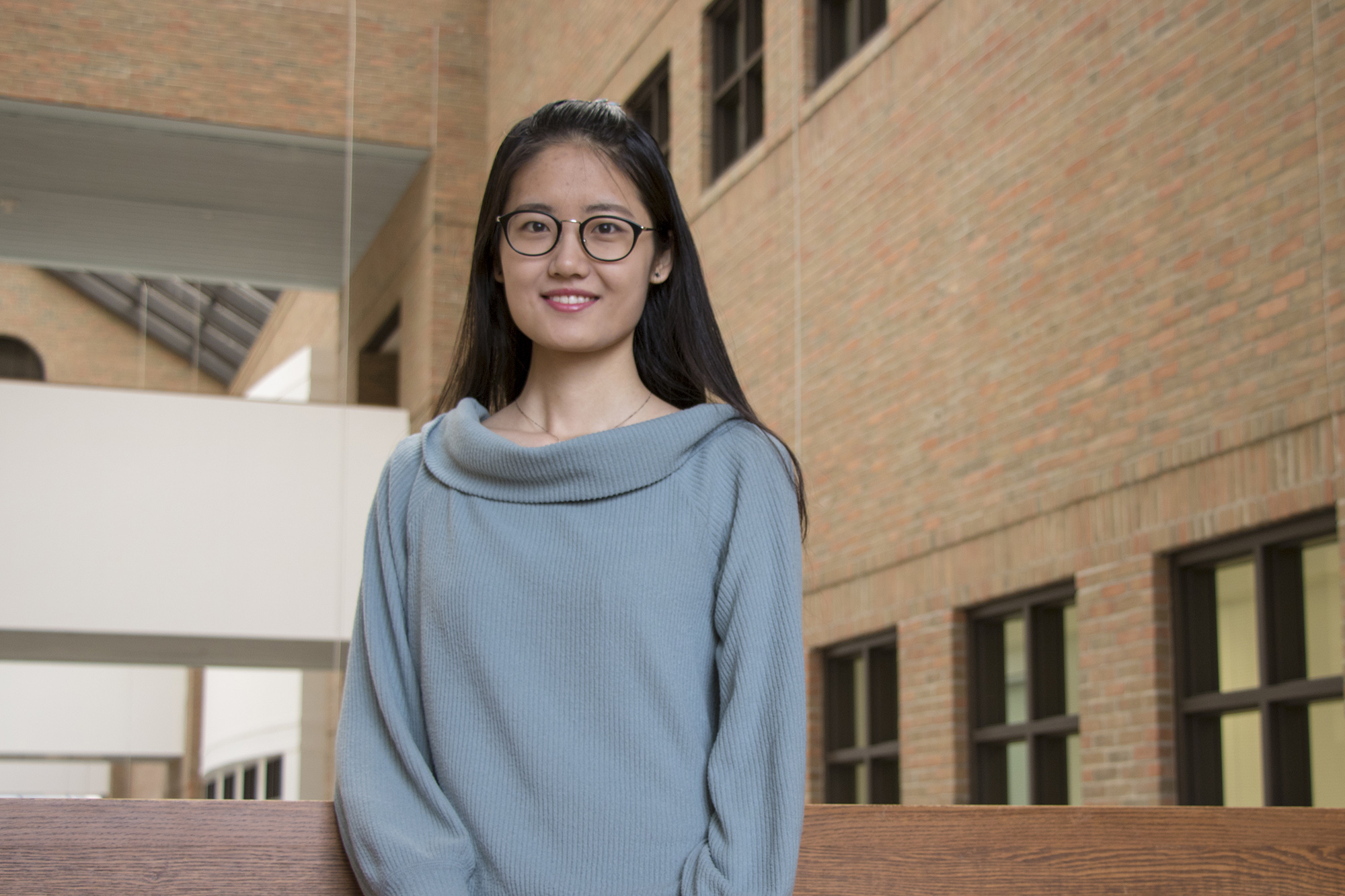
Sijia Geng, a doctoral student working with Prof. Ian Hiskens in the area of power and energy, was awarded the Richard F. and Eleanor A. Towner Prize for Distinguished Academic Achievement by the College of Engineering. She has co-authored two papers. The first, "Nonlinear Control of Variable Wind Speed Turbines via Fuzzy Techniques," details the use of the artificial intelligence of fuzzy logic to accommodate the many uncertainties in measuring wind speed, and using the results to adjust rotor speed to maximize power output. The second, "Sliding mode control of LLC resonant DC-DC converters," details creating a high-efficiency resonant converter, which are used to tune power to a specific frequency for use in electronics.
Sijia Geng awarded Towner Prize for Distinguished Academic Achievement
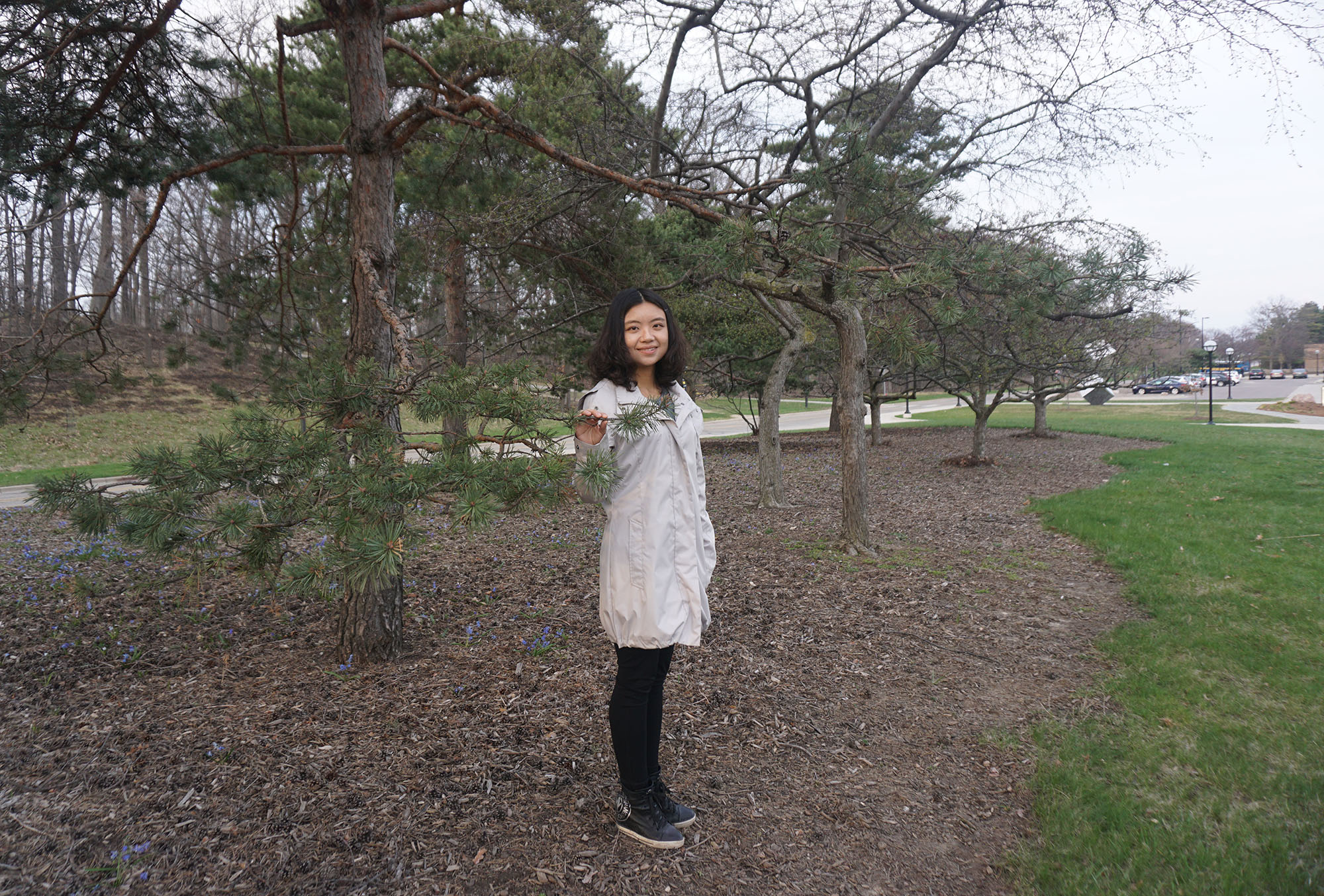
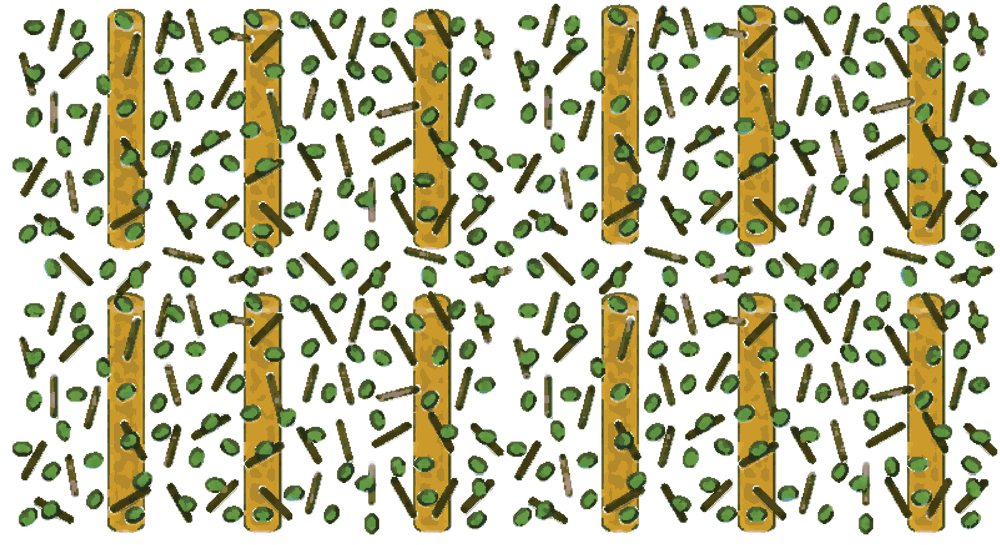
Huanting Huang, a doctoral student working with Prof. Leung Tsang in the general area of remote sensing, received the “IEEE Antennas and Propagation Society Ulrich L. Rohde Innovative Conference Paper Award on Computational Techniques in Electromagnetics” at ICCEM 2018 in March.
The ultimate goal of her research is to better understand the natural environment through the shapes of trees, which interfere satellite sensing of many regions of the globe. Huang has developed a method that paints trees more accurately using full wave simulations. By breaking down the model trees into smaller parts, the trunks and branches take their more natural, tree-shaped, positions.
“We’re still at the beginning steps,” says Huang. “We plan to simulate a whole forest, but we’ll need to use more powerful computing with parallelization.”
Combining greater computing power with her more efficient approach, Huang might be able to tell us more about what’s happening in the ground from a satellite than we know living on top of it.
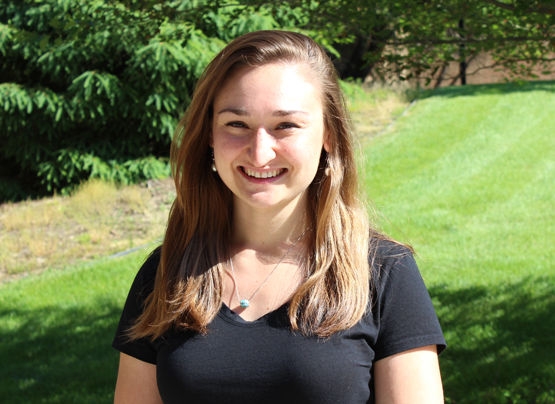
Her methodology maximizes energy generation while considering mechanical losses, electrical losses, and the static power required to activate control intelligence and facilitate power-electronic conversion.
Alyssa Kody Earns NSF Fellowship for Research in Energy Harvesting and Wireless Sensing
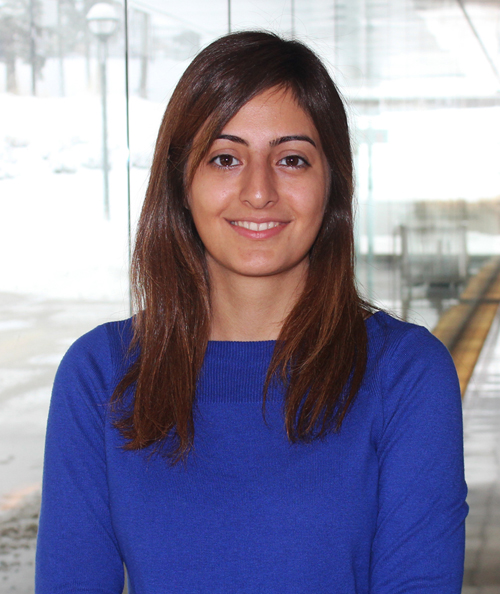
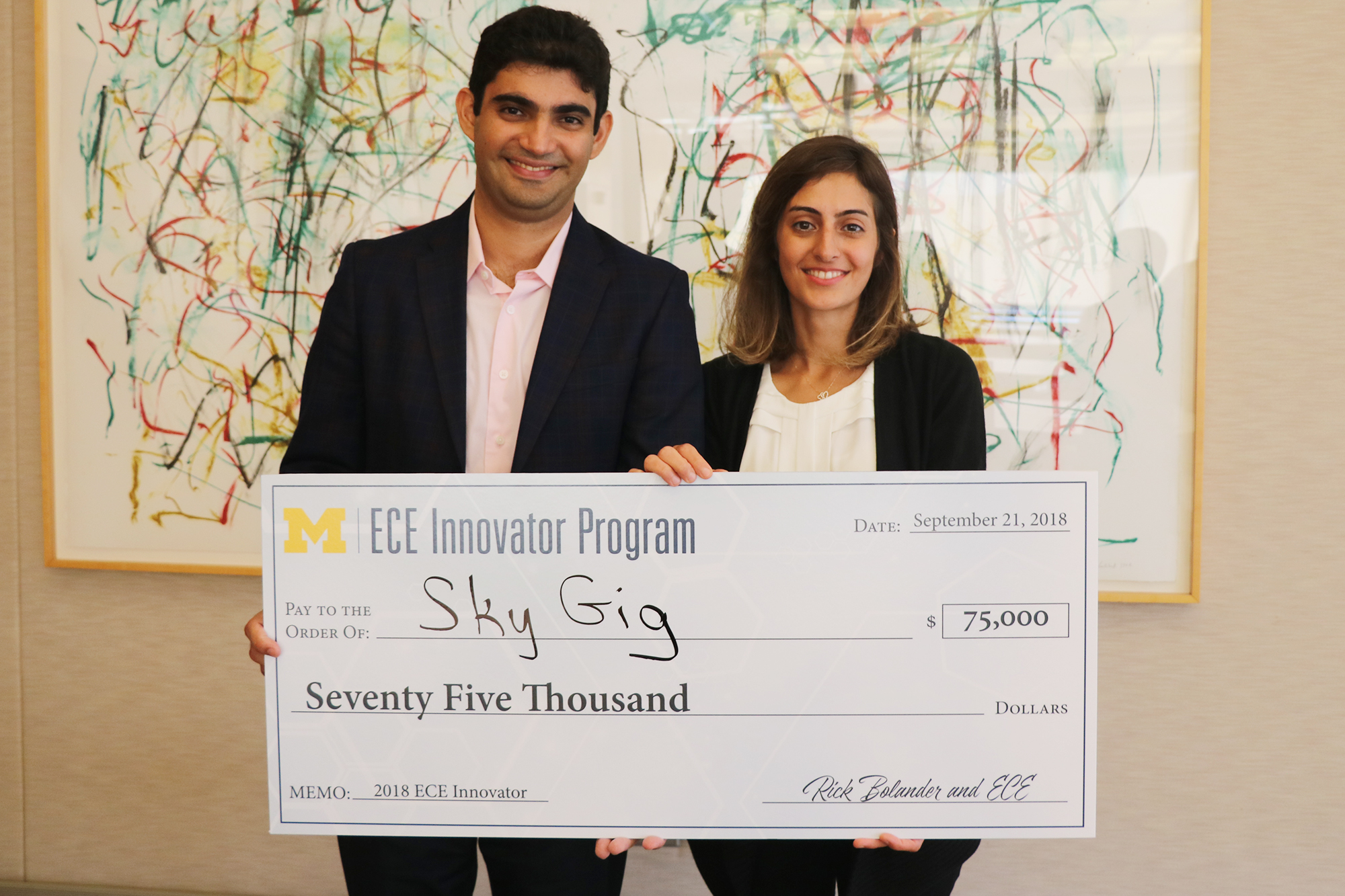 Avish Kosari is a co-founder of SkyGig, a startup company focused on improving wireless communication in the world of 5G and beyond, which won the inaugural ECE Innovator Program that was launched in 2018. SkyGig's unique wireless technology platform paves the path towards the next generation of high-speed wireless communication devices, where the team plans to work with telecommunication giants to find the best network solutions.
Avish Kosari is a co-founder of SkyGig, a startup company focused on improving wireless communication in the world of 5G and beyond, which won the inaugural ECE Innovator Program that was launched in 2018. SkyGig's unique wireless technology platform paves the path towards the next generation of high-speed wireless communication devices, where the team plans to work with telecommunication giants to find the best network solutions.
Kosari conducts research on ultra-low power and batteryless devices, including circuits, radios, and transceivers. She is a member of Prof. David Wentzloff’s group, designing devices that will help enable the Internet of Things and a connected world.
Transformative approach to 5G funded by new Innovator program
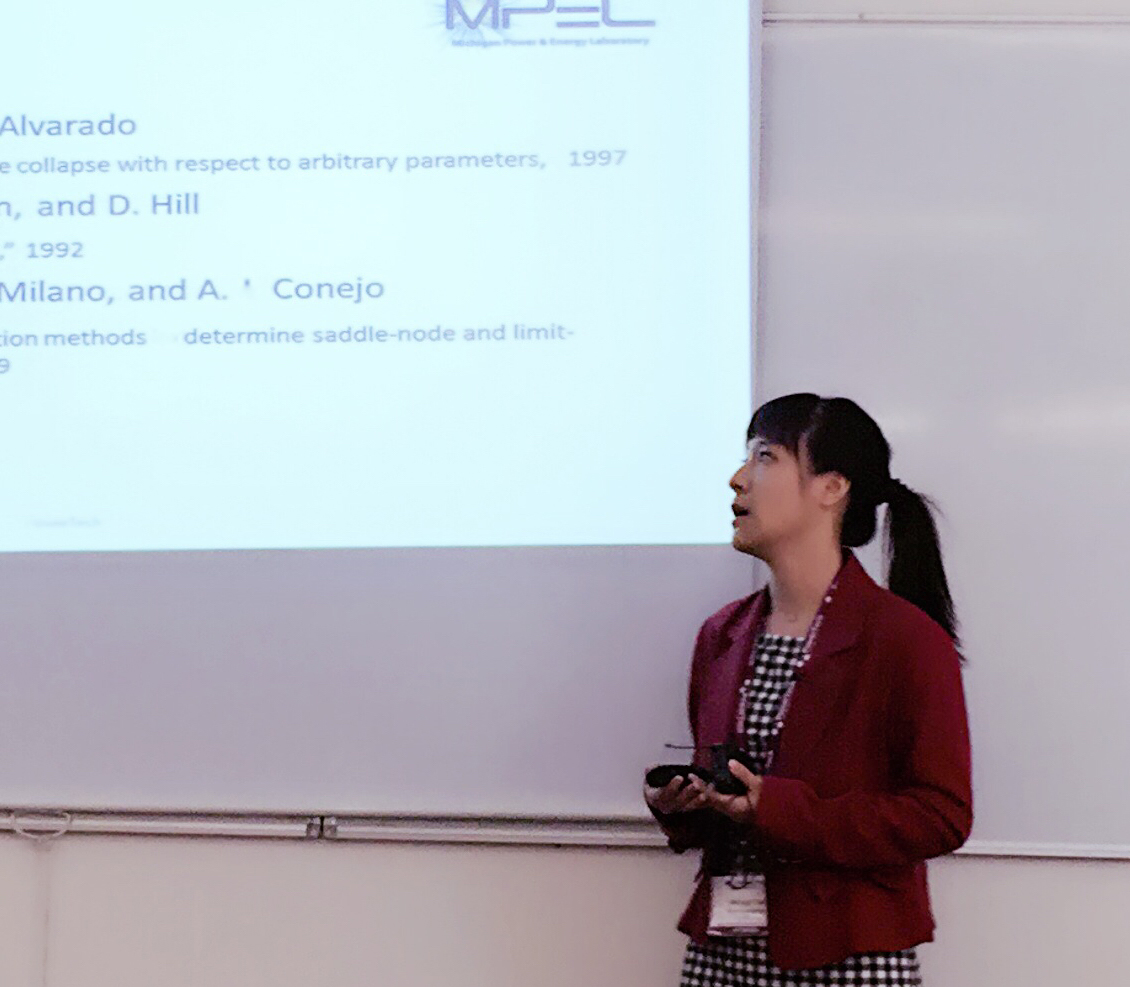
Mengqi Yao, a doctoral student studying power and energy, received a High Quality Paper Award at the PowerTech Conference for her paper, "Using demand response to improve power system voltage stability margins."
Yao researches power system stability and how demand response, as opposed to changing supply during a disruption, can improve this stability.
"Working on the demand side is really new. While voltage stability questions go back to the 1980s, we now have new renewable sources, as well as demand response," Yao said. “I’m interested in how these will impact the current power system, and how we can use resources like air conditioners and electric vehicles to better protect our power system."
Mengqi Yao receives High Quality Paper Award at PowerTech Conference